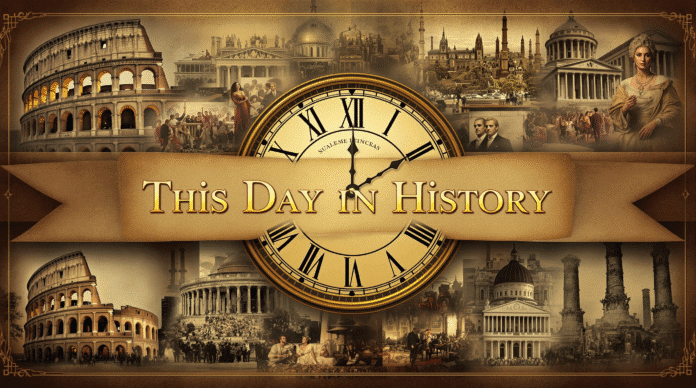This Day in History: July 5
1️⃣ 1946 — The Bikini Swimsuit Makes Its Debut
On July 5, 1946, French engineer-turned-designer Louis Réard unveiled the modern bikini at a Paris swimming pool. Named after Bikini Atoll, where the U.S. had recently conducted nuclear tests, the revealing two-piece caused an international sensation. At first, it was considered scandalous, even banned in several countries, but soon became a symbol of liberation and body confidence.
Why it matters today: The bikini sparked a cultural revolution, redefining women’s fashion, body image, and personal freedom in the postwar era.
Interesting fact: Réard had to hire Micheline Bernardini, a nude dancer, to model the bikini because no professional model dared to wear it!
2️⃣ 1687 — Newton Publishes Principia Mathematica
On July 5, 1687, Sir Isaac Newton published Philosophiæ Naturalis Principia Mathematica (“Mathematical Principles of Natural Philosophy”), laying down the laws of motion and universal gravitation. This masterwork became the foundation of modern physics and is one of the most important scientific books ever written.
Why it matters today: Newton’s Principia changed how humanity understands the universe and laid the groundwork for countless technologies, from engineering to space travel.
Interesting fact: The book was published with the financial support of astronomer Edmond Halley, who believed in Newton’s genius.
3️⃣ 1954 — Elvis Presley Records His First Hit
On July 5, 1954, a young truck driver named Elvis Presley stepped into Sun Studio in Memphis, Tennessee, and recorded “That’s All Right,” igniting his legendary career and ushering in the rock and roll era. The song’s upbeat, raw energy captivated audiences and soon made Elvis an overnight sensation.
Why it matters today: This moment marks the birth of modern popular music, shaping youth culture and influencing artists for generations.
Interesting fact: The recording session was completely unplanned — Elvis started fooling around with the song during a break, and producer Sam Phillips hit “record.”
4️⃣ 1811 — Venezuela Declares Independence
On July 5, 1811, Venezuela’s congress formally declared independence from Spain, becoming the first South American country to break free from colonial rule. Led by patriots like Francisco de Miranda and Simón Bolívar, the movement inspired a broader push for independence across Latin America.
Why it matters today: Venezuela’s declaration was a bold step that encouraged a continent-wide liberation movement and shifted the colonial power balance.
Interesting fact: The new nation initially adopted a tricolor flag that is still used in modified form today.
5️⃣ 1975 — Cape Verde Gains Independence
On July 5, 1975, the Republic of Cape Verde officially declared independence from Portugal after years of anti-colonial struggle. Located off the coast of West Africa, the archipelago had been under Portuguese control since the 15th century. Independence brought immense pride and challenges to the island nation, which soon established a stable democracy.
Why it matters today: Cape Verde stands as a success story among post-colonial African nations, proving that small states can build stable, resilient societies.
Interesting fact: Cape Verde’s independence was celebrated in a joint declaration with Guinea-Bissau, reflecting their shared struggle.



